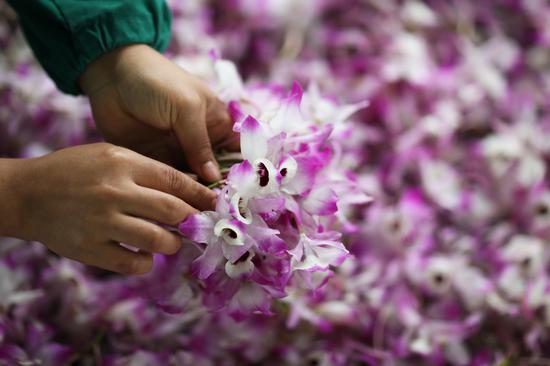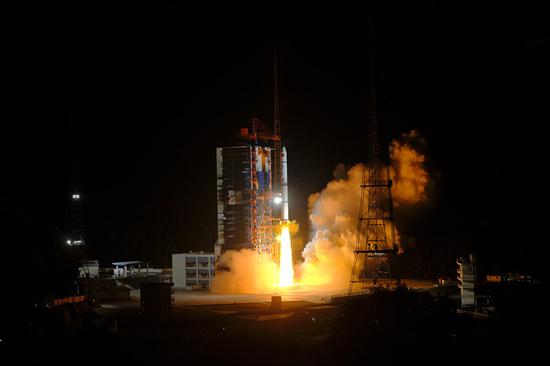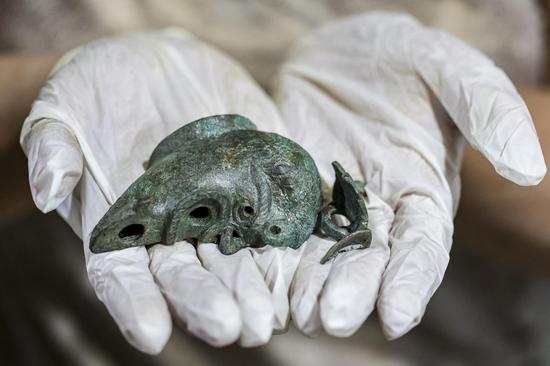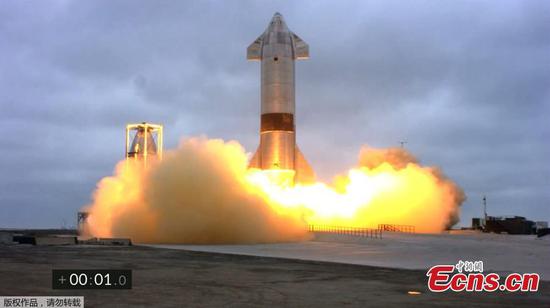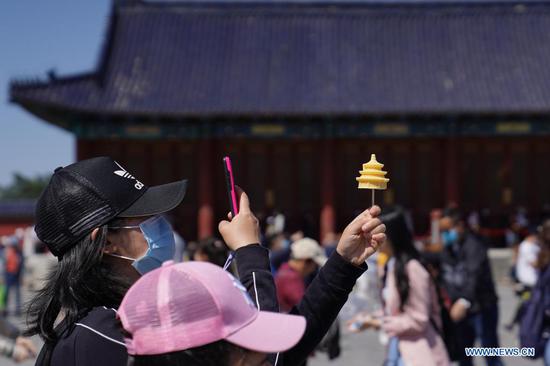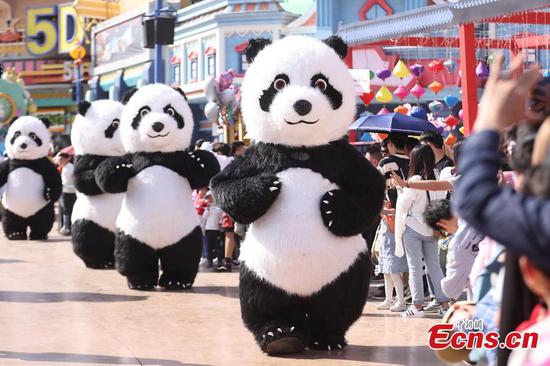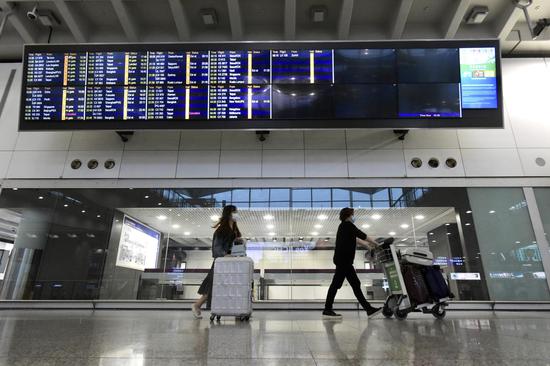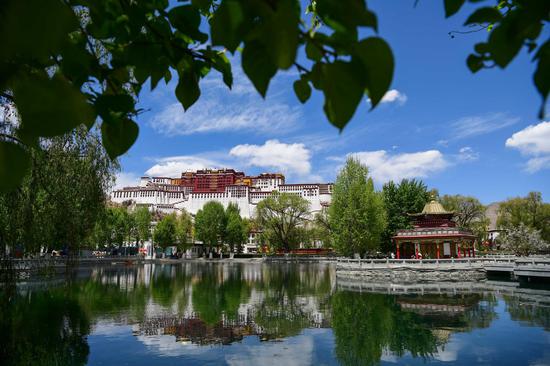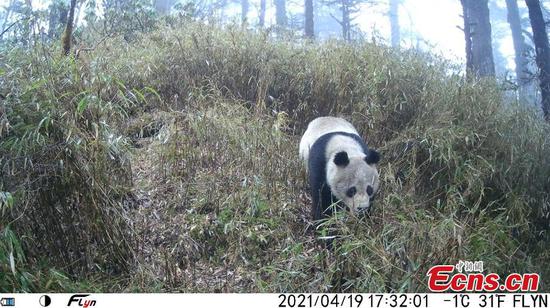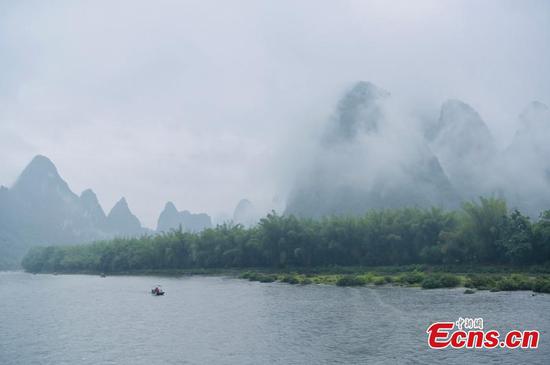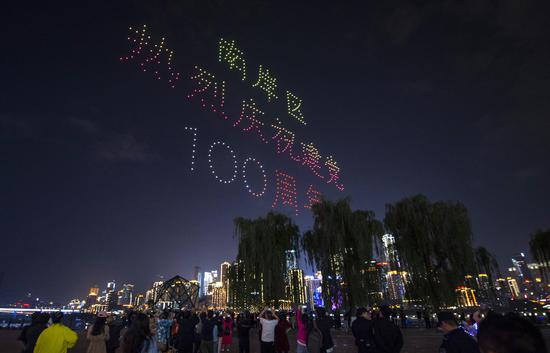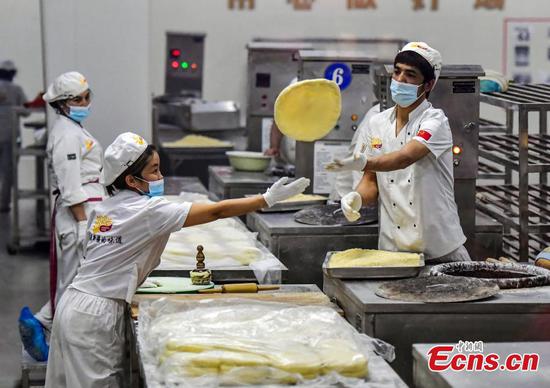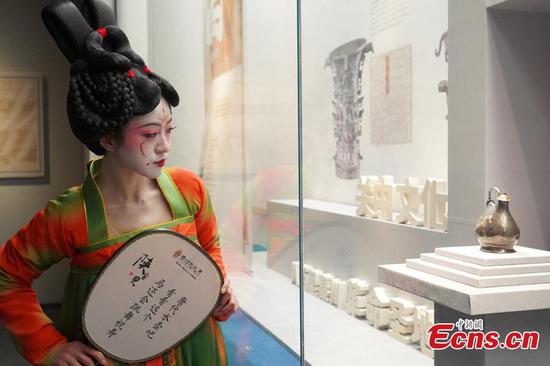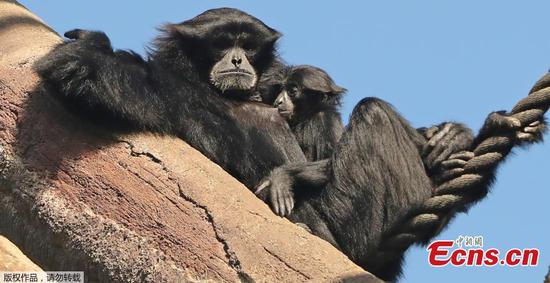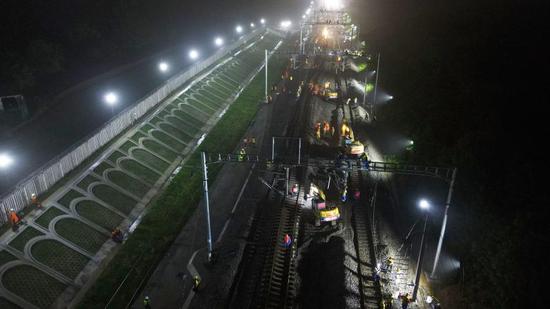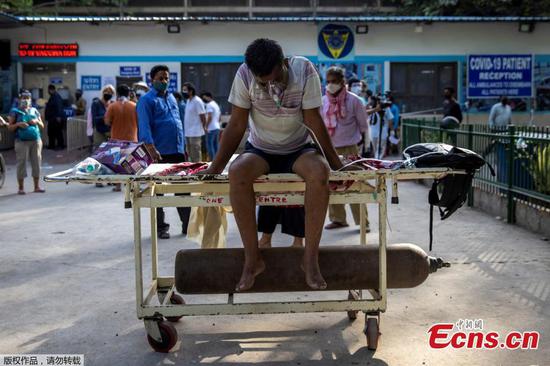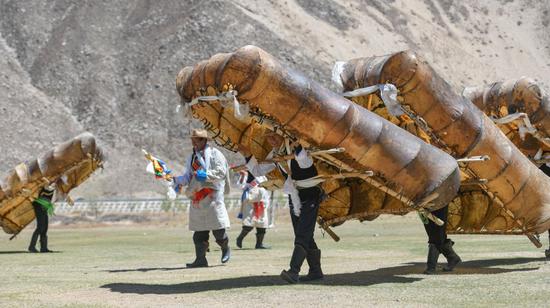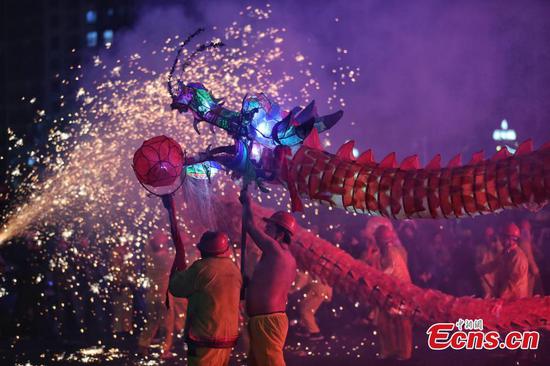
A cotton harvesting machine works in a field in Manas county, Hui autonomous prefecture of Changji, Northwest China's Xinjiang Uygur autonomous region, Oct 17, 2020. (Photo/Xinhua)
Tricks behind attacks
Su Xiaohui, deputy director of the Department for American Studies at the China Institute of International Studies, or CIIS, said, "Although Washington and London appear to be well coordinated in terms of hyping the Xinjiang human rights issue, different goals lie behind such coordination.
"The U.S. is aiming for an ideological conflict with China to bring its allies closer to it and advance their shared values, while Britain, in contrast, has been driven by growing anxiety since Brexit and its need for a tighter alignment with the U.S.," she said.
The focus of ideological attacks is changing, Su said. She noted that Hong Kong was at the heart of Washington's plan to contain China during the administration of Donald Trump, but now the U.S. has moved on to Xinjiang, as Hong Kong has shifted from chaos to order.
Since the U.S. and its allies realized that it is hard to destabilize China overnight," their focus on Xinjiang has been closely linked to their work in other areas to stir up tension on several fronts simultaneously and multiply the impact", she said.
Referring to terms used by the West to play up the Xinjiang issue, such as "labor camp", "forced labor" in cotton production and "genocide", Su said these are all "part of the West's old tricks used for manipulating human rights issues".
The West prefers to manipulate issues such as human rights that are likely to resonate in Western communities and among the public."This lack of innovation in campaigns shows the huge frustration the West has faced" since efforts were stepped up in Xinjiang to root out separatist and terrorist hotbeds, Su said.
Yang Shu, director of Institute for Central Asian Studies of Lanzhou University, said Washington clearly knows that publicly supporting separatism in Xinjiang will lose it the moral high ground, while attacking China on human rights issues "best serves its purpose of making trouble for China with the lowest cost".
For countries such as the U.S., "tapping into human rights issues is always the most cost-effective way to challenge the legitimacy of another government or ruling party", Yang said.
In essence, verbal attacks in the name of democracy or human rights help trigger ideological confrontation, and such attacks make it easier for Washington to lobby allies and win their support, Yang added.
Social media platforms are now playing a prominent role in the defamation campaign on the Xinjiang issue, Yang said.
"The individuals involved first spread rumors and unfounded allegations with eye-catching text, images and short videos issued via social media at low cost. In doing so, they quickly offer material to or are quoted easily by various news outlets, politicians and scholars for faking news and raising further allegations," he said.









